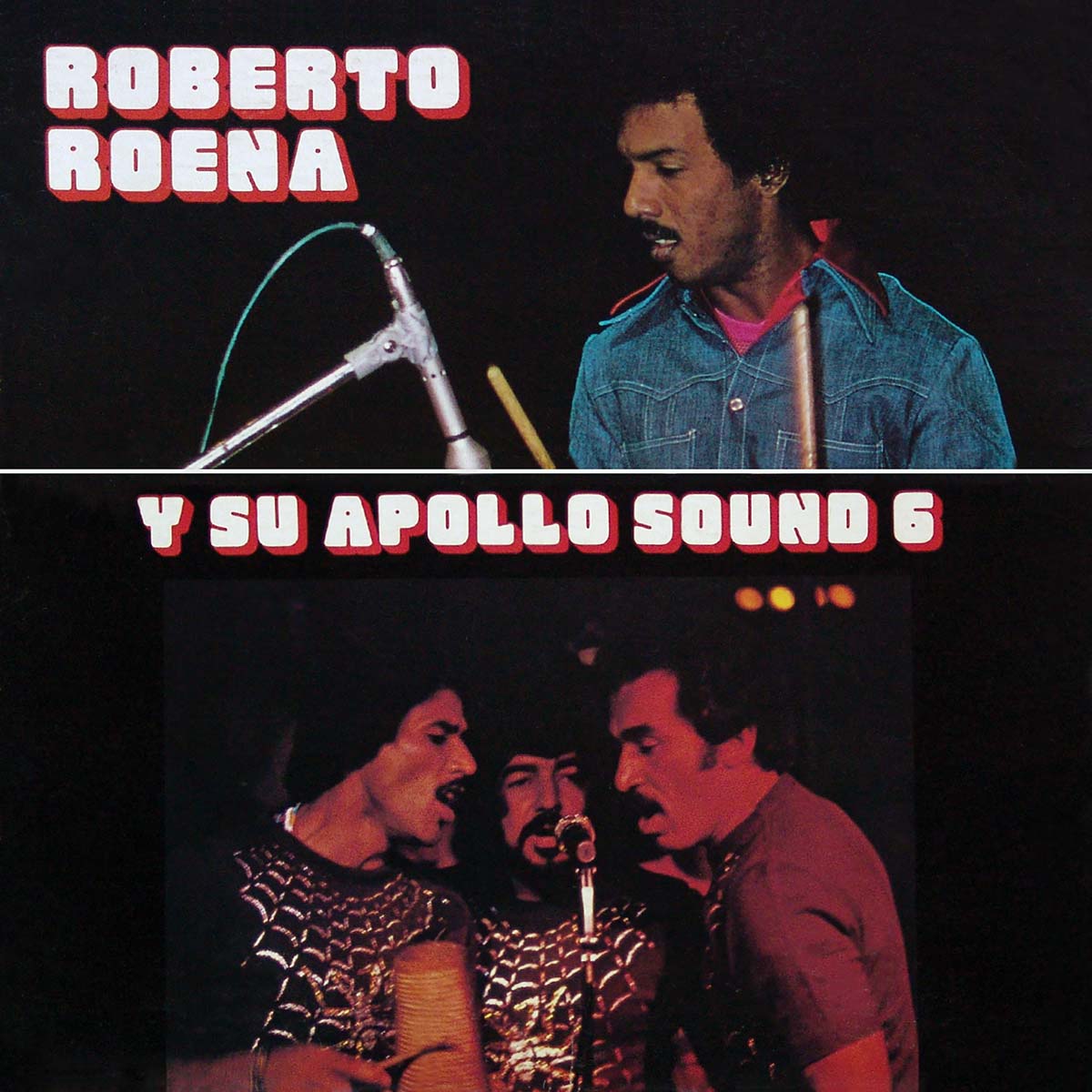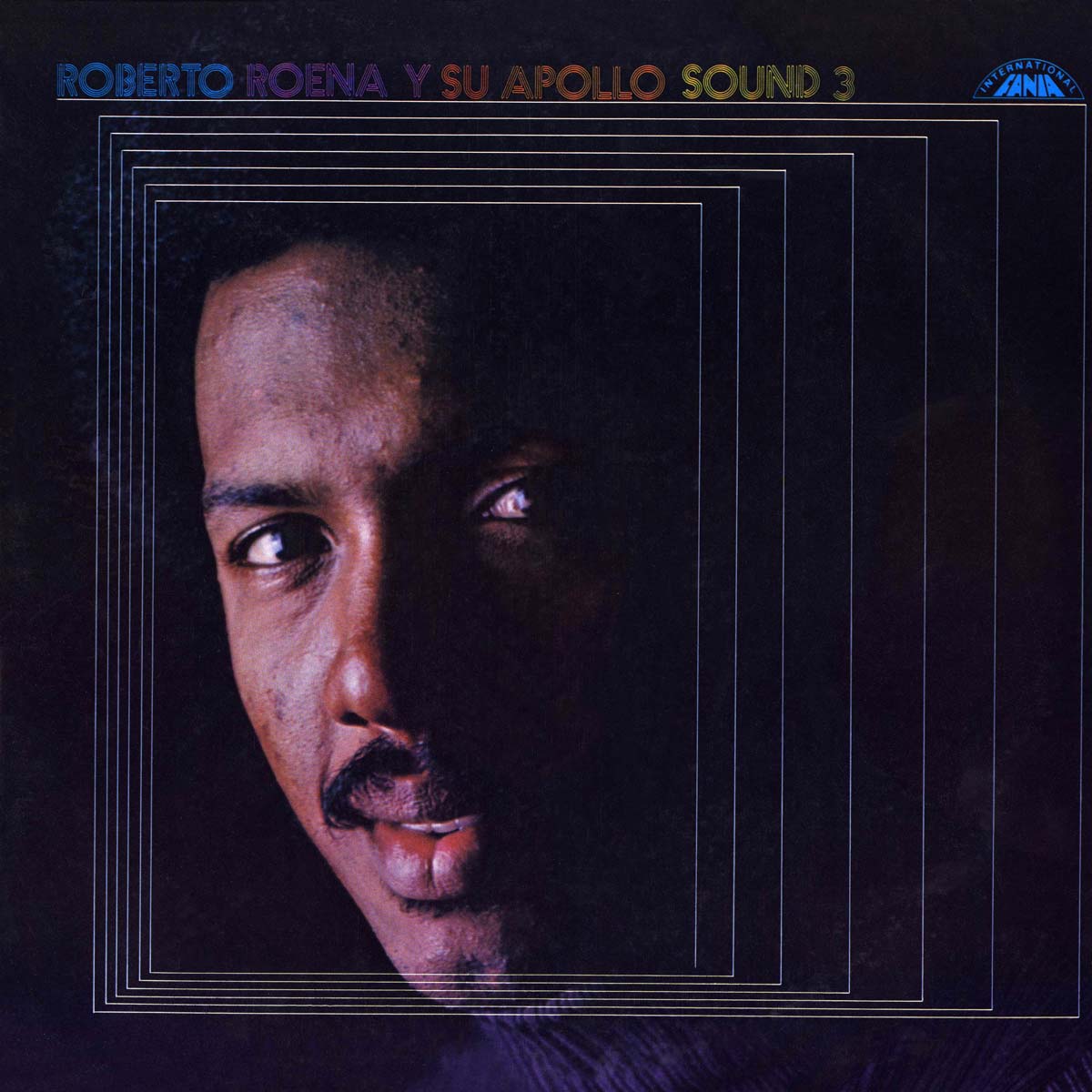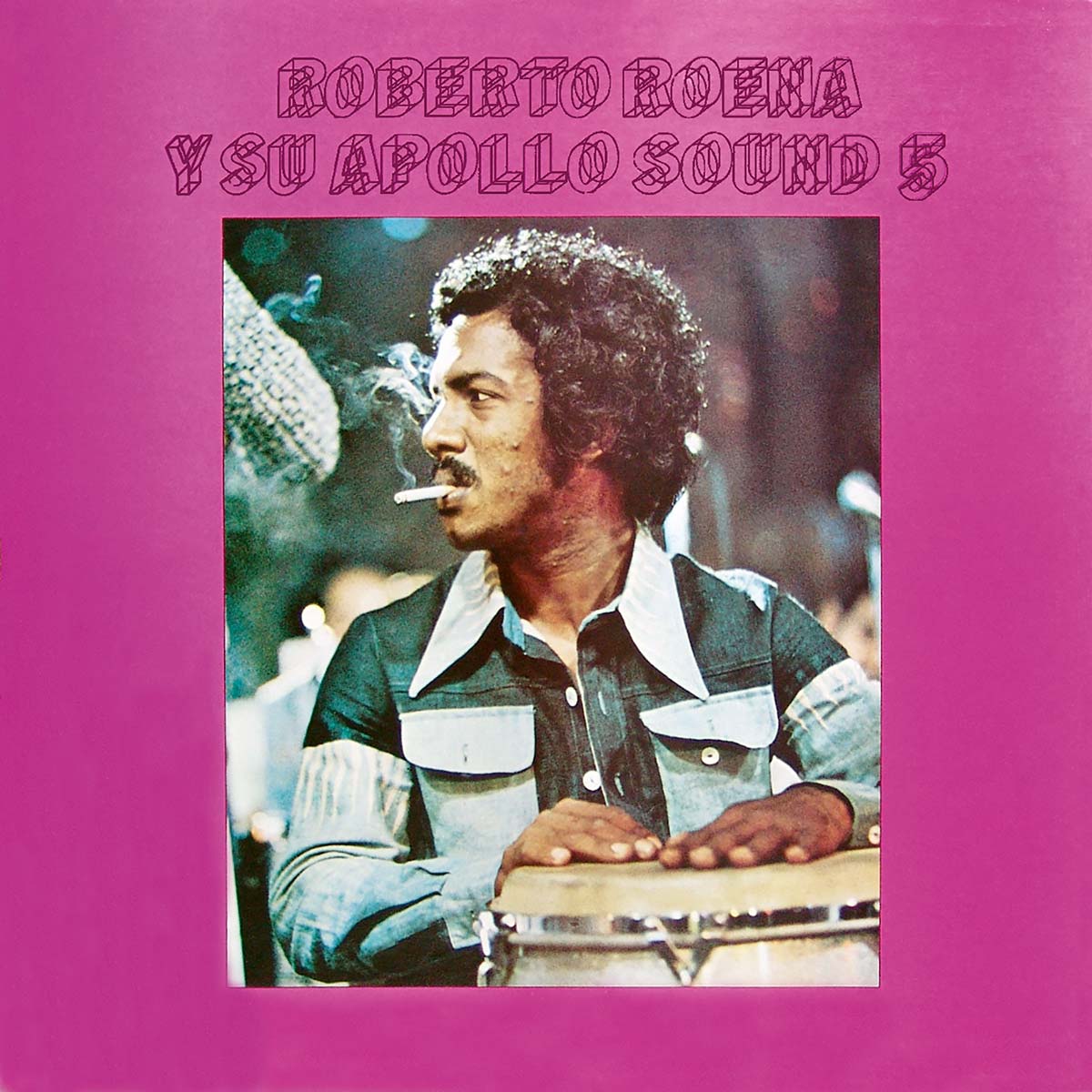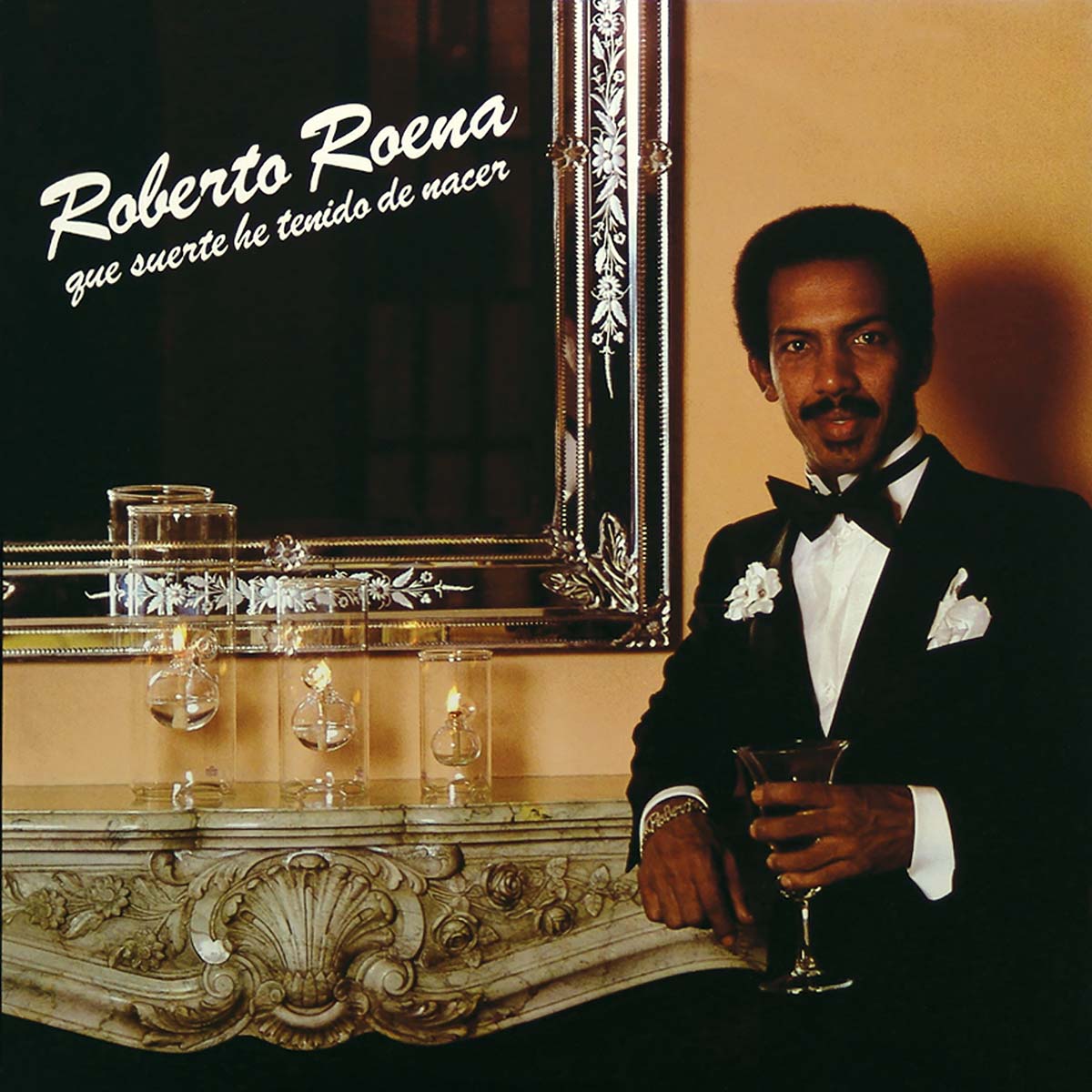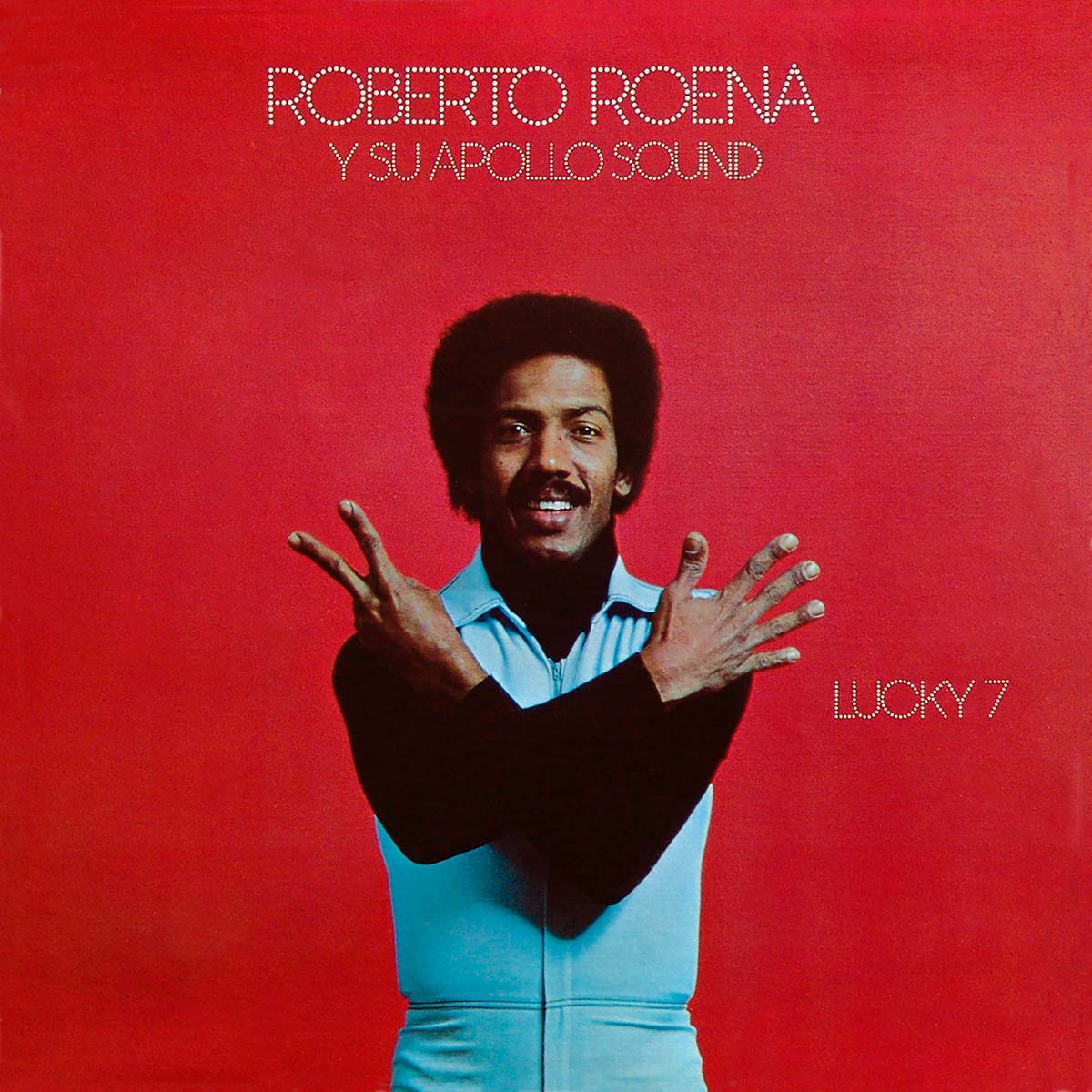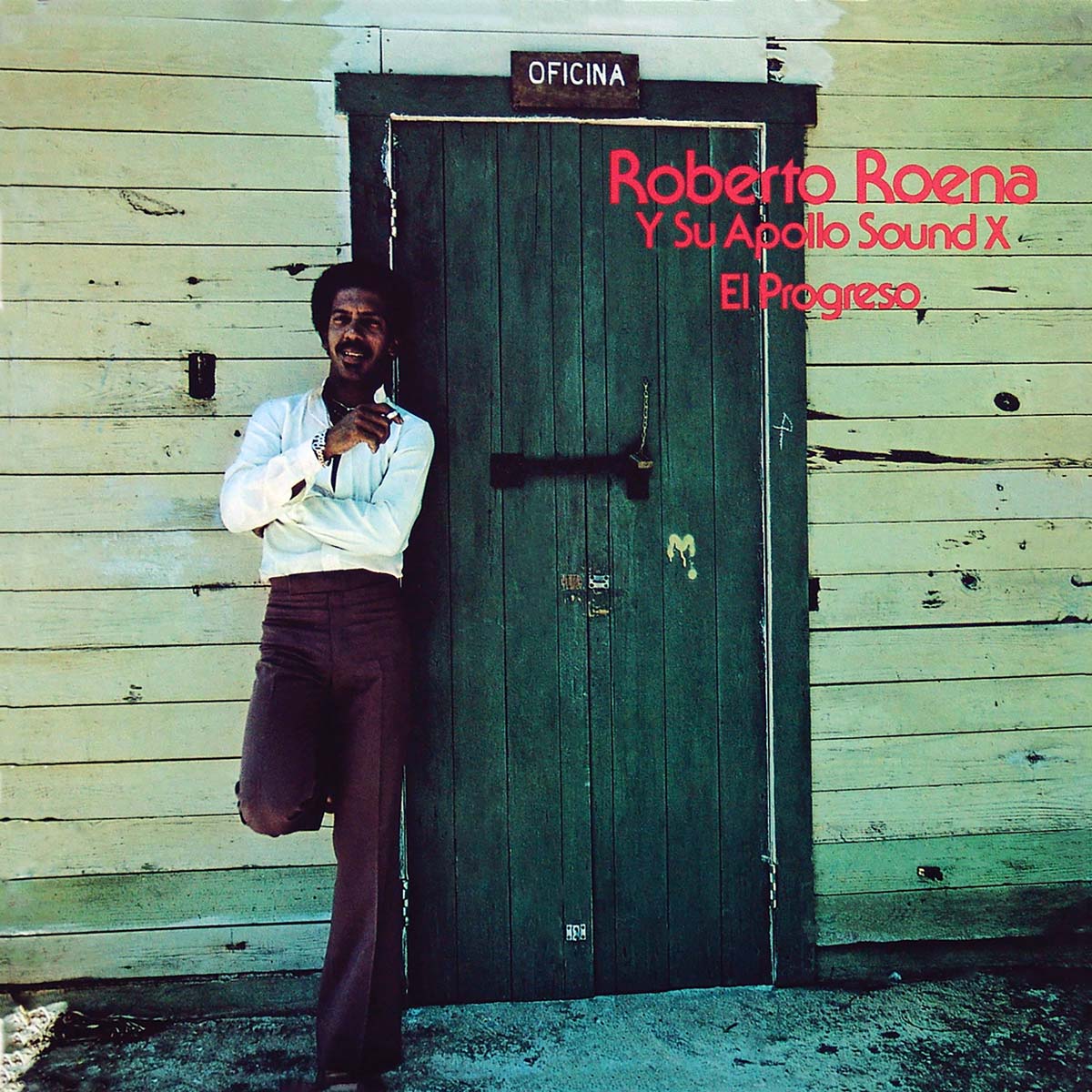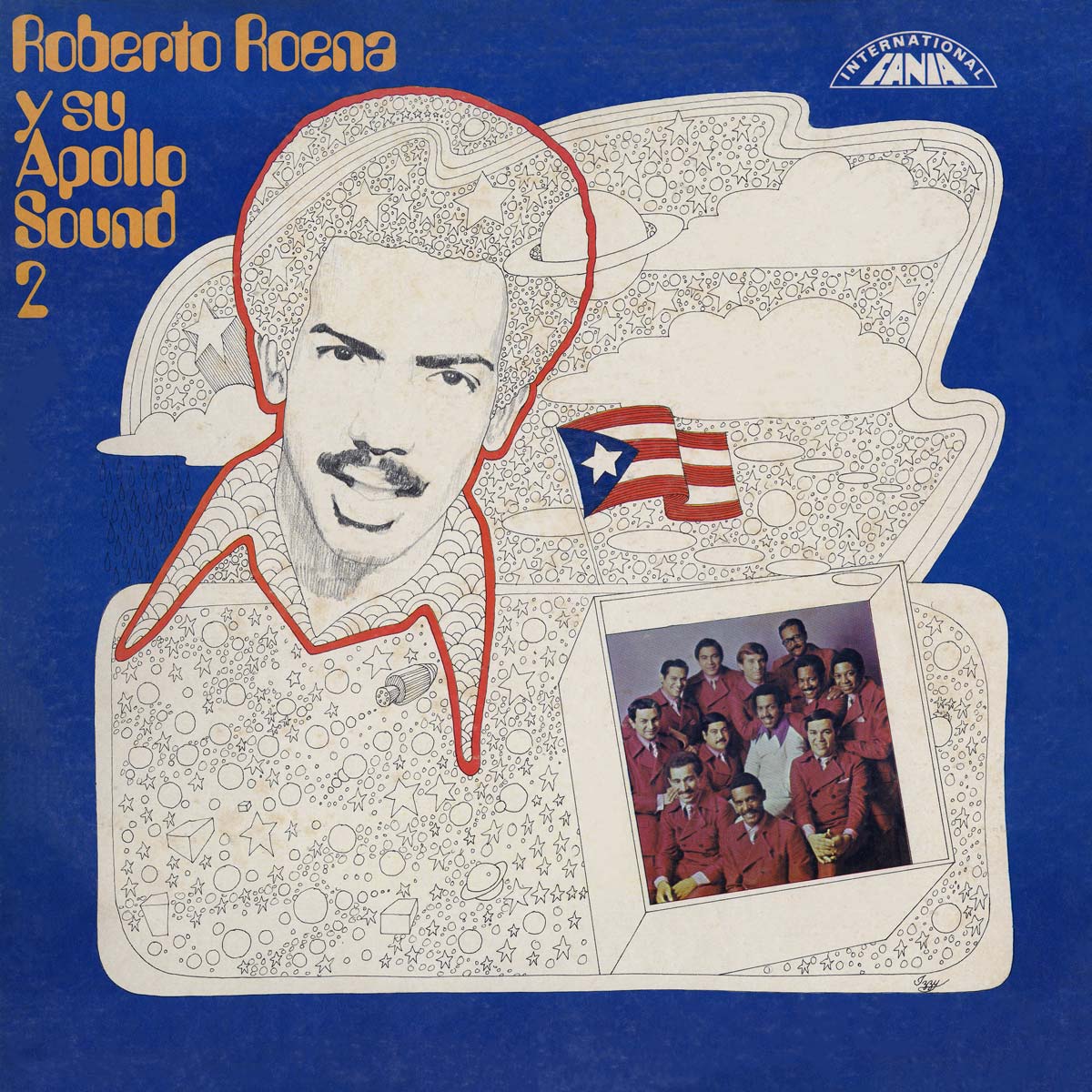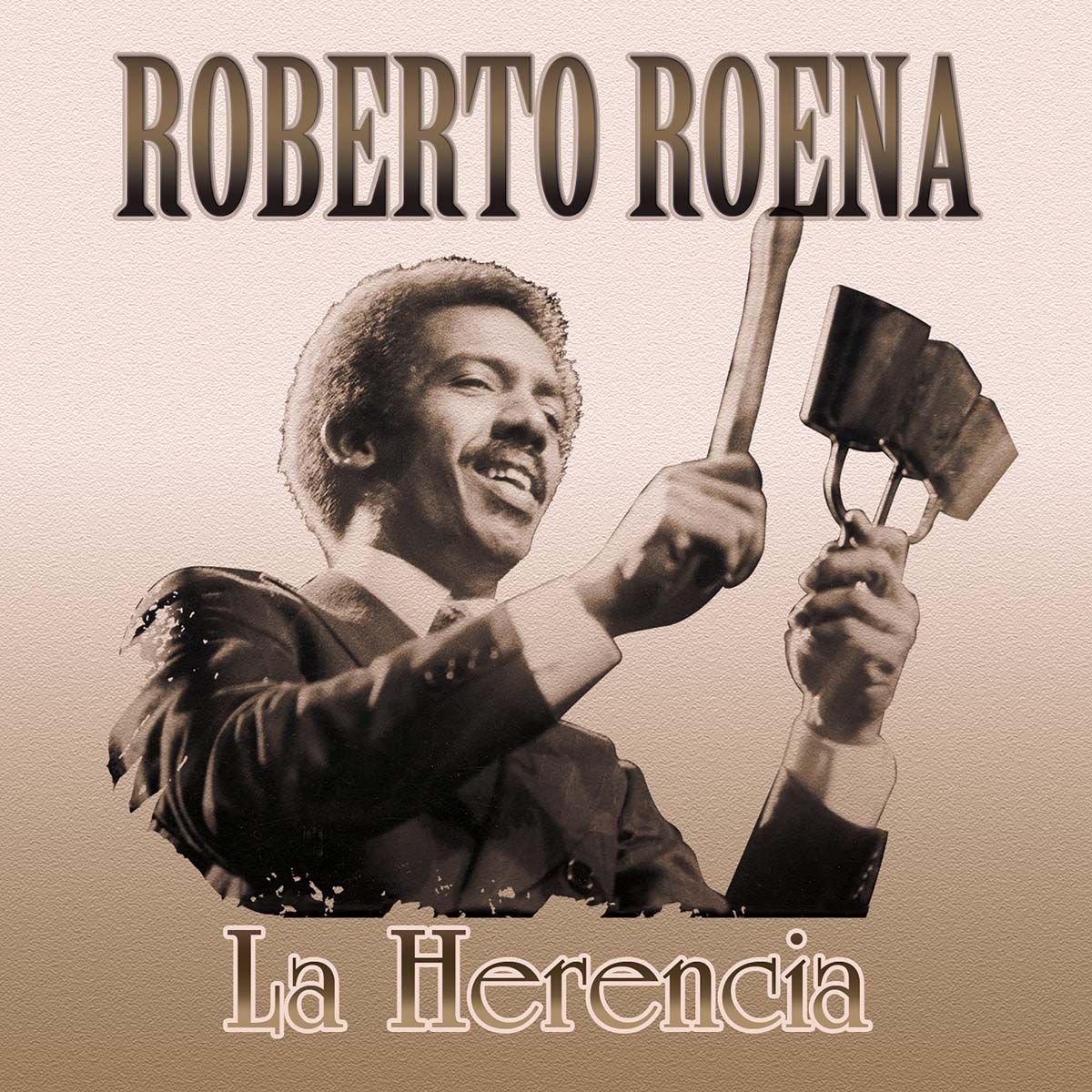
The 15 tracks on this compilation leave no doubt about it: Roberto Roena is one of the most progressive bandleaders in the entire Afro-Caribbean genre. In the end, history vindicated him. Throughout the years, the Puerto Rican bongosero and bandleader has been criticized by many for his lack of formal musical training. At the end of the day, however, having something to say is much more important than any conservatory schooling.
What Roena lacked in virtuoso chops, he more than compensated for it with the purity and originality of his vision. With the empathetic backing of his brilliant Apollo Sound orchestra, Roena flirted openly with samba, funk, jazz and rock’n’roll. He was inspired by the brassy sound of early ’70s rock groups like Chicago and Blood, Sweat & Tears. And yet, his sound was undeniably tropical and stubbornly Puerto Rican. It was reckless and energetic, but still marked by the elegance of spirit (that light, restrained swing) that defines quintessential boricua orchestras like El Gran Combo and La Sonora Ponceña. Ironically, Roena began his career as a dancer, not a musician. He was discovered by Puerto Rican Salsa pioneer Cortijo and groomed as a percussionist. When part of the orchestra defected in order to form El Gran Combo, Roena chose to remain with the Maestro. Eventually, after Cortijo had moved to New York, he finally joined El Gran Combo, staying with Raphael Ithier’s group for a number of years. Roena’s first effort as a solo artist had come with the band known as Los Megatones. In 1970, he formed the more promising Apollo Sound, named after the historic launch of the Apollo 12 rocket.
Music industry insiders frowned at the creation of an all-star group whose bandleader was a bongosero with limited musical ability. Roena proved them all wrong. Soon enough, he was invited to perform with the Fania All Stars as the orchestra’s bongosero of choice. We begin our anthology of grand Apollo Sound moments with “Tú Loco Loco, Y Yo Tranquilo” – the quintessential Roena hit and the auspicious opening track of the band’s debut album, written expressly for the occasion by Puerto Rican composer Tite Curet Alonso. Also from that album, “Soñando Con Puerto Rico” is marked by its solemn mood, lilting piano lines and a fervent patriotic message. Boricua pride, in fact, has been one of the recurring themes in Roena’s discography. In 1973, the release of Roberto Roena Y Su Apollo Sound 5 found the bandleader expanding the boundaries of his sound. The album’s opening track was the infectious “Cui Cui”- an endearing slice of tropical pop that compared a woman’s tears to the rain falling from the sky. On the electrifying “Que Se Sepa,” Roena merged the Afro-Cuban tinge with heavy touches of R&B and American funk. The song, which suggests a Puerto Rican version of a vintage James Brown jam, stands to this day as one of the most intriguing gems in the Fania catalogue. A bootleg video of a young Roena performing a thunderous extended version of “Que Se Sepa” on Puerto Rico’s television show Noche De Gala is treasured among hardcore Roena collectors. Apollo Sound 5 comes to a thunderous conclusion with a nine minute long version of “Ponte Duro,” the Johnny Pacheco penned jam session that Roena had recorded in 1971 with the Fania All Stars for the second volume of the Live At The Cheetah LP set. This new version is appropriately explosive, with lengthy solos from the brass and percussion sections. By now, Roena was at the top of his game. He continued this winning streak in 1974 with Apollo Sound VI, generally regarded as the one album where he finally proved to the world that his band occupied a place of honor within Puerto Rican Salsa. The record’s opening track was “El Que Se Fue,” a heartfelt tribute to Puerto Rican crooner Tito Rodríguez, who had died the previous year at age 50.
It was followed by “Traición”, the session’s biggest hit, and arguably its highest point. The track begins with subtle atmospherics – sharp touches of bongoes, smooth vocals and delicate piano lines – leading to a climax of fiery coros and breathless brass riffs. As the record comes to an end with the stirring “Herencia Rumbera,” a young Endel Dueño performs a gutsy timbales solo, followed by a much needed declaration of principles: Este es el aporte del Apollo Sound a la música latina (This is the Apollo Sound’s contribution to Latin music). The one element that made the Apollo Sound so hip was its leader’s omnivorous musical taste. By the time he recorded the phenomenally successful “El Progreso” in 1978, he was deeply in love with Brazilian rhythms – an innovation that would become one of the band’s trademark aesthetic quirks. “El Progreso’s” title track is a salsified version of the Brazilian pop nugget composed by Roberto Carlos and his longtime songwriting partner Erasmo Carlos. The catchy melody of the original, coupled with Elías López’s supremely elegant arrangement, foreshadow the advent of the lighter and highly commercial style later known as salsa romántica. Also from that album, “Guaguancó Del Adiós” brings us back to the orchestra’s familiar territory of groovy cowbell beats and swinging vocal choruses. The Tite Curet Alonso composition, which details the bitter reproach of a scorned lover, is a fitting end to this anthology of Roena’s prime moments. Although he was never able to match the creative heights of the material included in this disc, Roena continued recording excellent albums throughout the ’80s, ’90s and even the new millennium. In recent years, he released a video taped during a Bellas Artes concert in Puerto Rico. In it, the bongosero can be seen performing his many hits in front of a fervent audience, lost in the rapture of the Apollo Sound. At this point in time, Roena’s legitimacy within the tropical music spectrum has been widely accepted. He’s an essential part of Puerto Rican Salsa – one of the island’s most cherished and respected innovators.
Produced and Compiled by Ernesto Lechner


